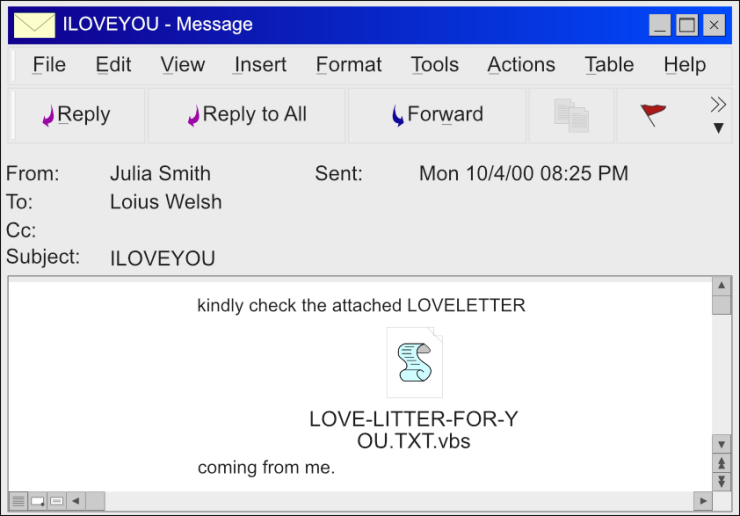What is the First Computer Virus in the Philippines?
Updated on October 16, 2025 • by PinoyGPT Editorial

The first widely recognized computer virus originating from the Philippines is ILOVEYOU, also known as the Love Bug or Love Letter worm. It was released on May 4, 2000 and attributed to Onel de Guzman, then a student at AMA Computer College in Manila. At the time, the Philippines had no specific law criminalizing this type of activity, and the case was dropped— an outcome that spurred the creation of local and international cybercrime legislation.
Origins of the ILOVEYOU Virus
ILOVEYOU emerged at the turn of the millennium when email was rapidly becoming a default channel for both
personal and business communication. The worm exploited social engineering by using the irresistible subject line
“ILOVEYOU” and an attachment named LOVE-LETTER-FOR-YOU.txt.vbs. The double
extension .txt.vbs often appeared to users as a simple text file due to Windows’ default setting
that hid known file extensions—making it more likely for recipients to open it.
How the Virus Spread and What It Did
Once opened, the Visual Basic Script executed on Windows systems and performed several malicious actions:
- Self-propagation: Automatically emailed itself to all contacts in the victim’s Microsoft Outlook address book.
- File damage: Overwrote or altered files, including media and script files, causing data loss.
- Credential theft: Attempted to harvest passwords on infected machines.
Global Impact and Aftermath
ILOVEYOU infected millions of computers worldwide, overwhelmed email servers, and disrupted global operations. Estimates of its economic impact ran into the billions of dollars, driven by lost productivity, incident response, and system restoration. The scale and speed of the outbreak permanently raised awareness about email-borne malware and accelerated best practices like showing full file extensions, email filtering, and user security training.
Why It Mattered for the Philippines
The legal gray area highlighted the urgent need for cybercrime laws. In the years that followed, the Philippines and many other countries enacted or strengthened legislation to address malware, unauthorized access, and other computer-related offenses. The incident also became a case study in how policy, technology, and human behavior intersect in cybersecurity.
Quick Facts
- First major PH-originating virus: ILOVEYOU (a.k.a. Love Bug / Love Letter)
- Release date: May 4, 2000
- Primary vector: Email (Microsoft Outlook address book)
- Payload: File overwrites, password theft, mass mailing
- Legacy: Sparked cybercrime legislation and stronger email security practices
Stay Safe: Lessons That Still Apply
- Be suspicious of unexpected attachments—even from known contacts.
- Enable viewing of full file extensions (avoid being fooled by double extensions).
- Use reputable email filtering and endpoint protection.
- Keep operating systems and software up to date.
- Back up critical data regularly.
What are your memories of the ILOVEYOU era? Share your thoughts below or contact us with topics you’d like us to cover next.
